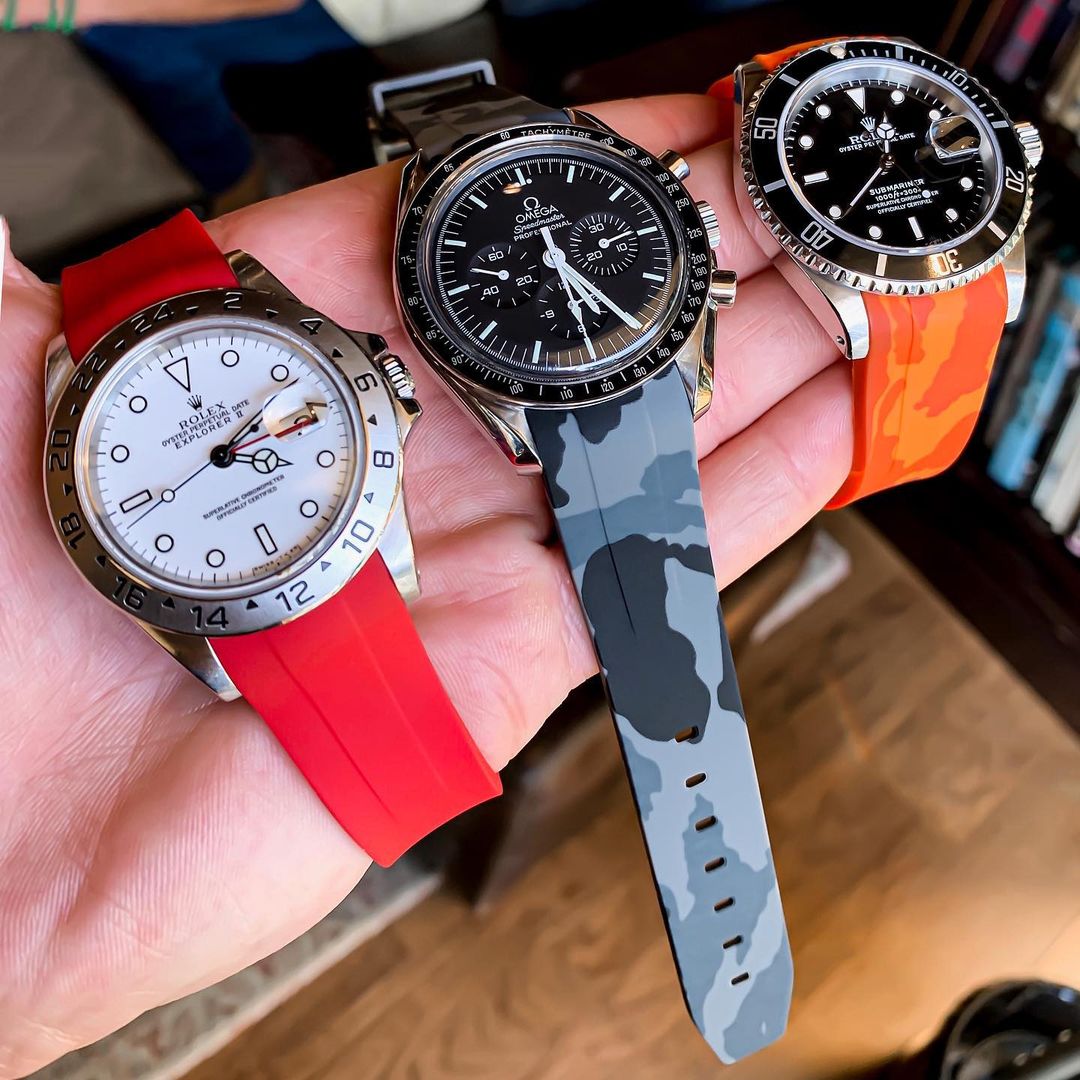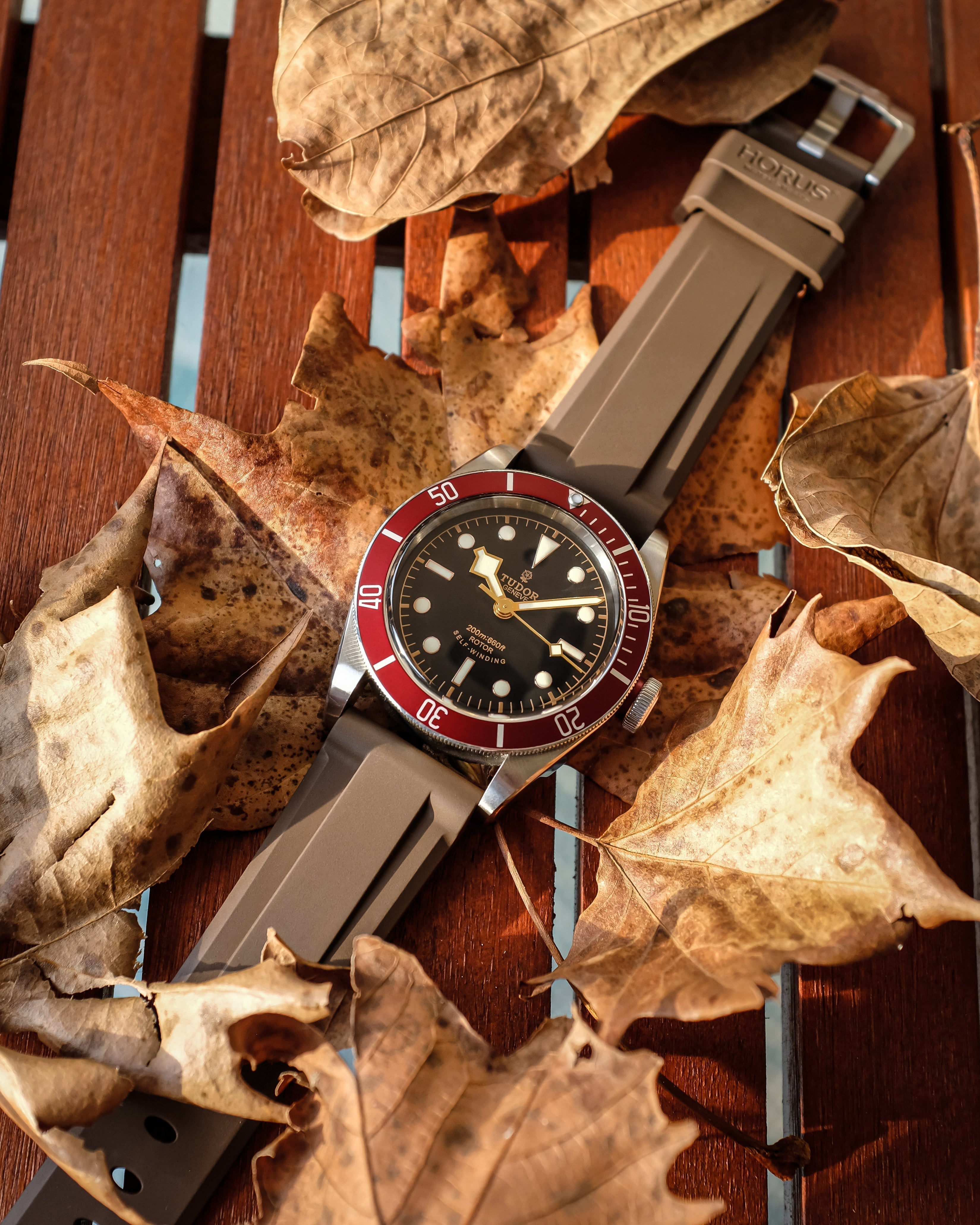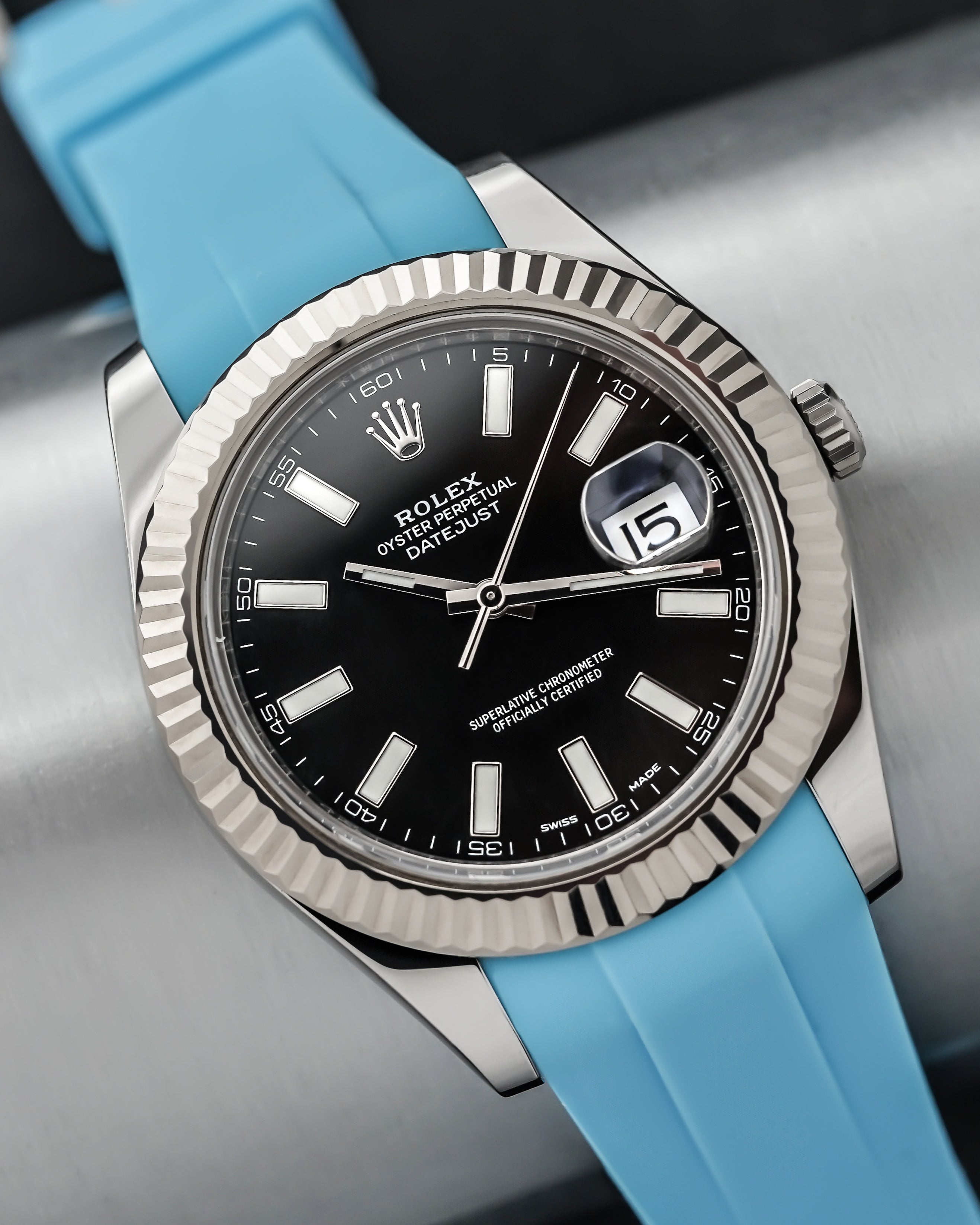October 27
Omega vs Rolex: Which is better?

The Question
Ask a random person on the street to name a Swiss watch brand, and they are almost guaranteed to name either Rolex or Omega. These two watchmaking behemoths are always locked in a heated battle of the brands to see who are the kings of Swiss watchmaking, and like any rivals, so too are their extremely dedicated fan bases.
While we here at Horus Straps love them both deeply for their contributions to the world of horology, it's always fun to examine which brand is better, and if you want to know for your own peace of mind, then you've come to the right place. Omega or Rolex, who is better?
A Bit of History
Louis Brandt founded Omega in 1848 in Le Chaux-de-Fonds. Omega's history is full of iconic moments whereby the utility their timepieces offered was too hard to ignore. In 1905 Omega was the official timekeeper at most major sports events throughout Switzerland. Twelve years later, in 1917, Omega became the watch of choice for the British Royal Flying Corps and a year after that were on the wrists of the U.S. Army too. Finally, in 1932 they acquired their most important timekeeping partnership, the Olympics – a partnership that still survives to this day.
While the sky would typically be the figurative limit, Omega overcame it. In 1969 NASA decided the best watch to send to the Moon would be an Omega Speedmaster after extensive testing of it and a host of rival watches. In probably one of the most iconic watch partnerships, however, Omega teamed up with English spy James Bond in the '90s and have remained the famous character's watch of choice ever since.
Rolex was founded in 1905 in London by brother-in-laws Hans Wilsdorf and Alfred Davis as 'Wilsdorf and Davis'. The pair started the business by importing accurate Swiss movements from Hermann Aegler and putting them in third-party cases. A far cry from the entirely vertically integrated company it is today, Rolex began truly evolving when it was taken to Geneva in 1919.
Seven years later, in 1926, Rolex produced one of their most brand-defining inventions, the Oyster case, with its screw-down crown and case back. Then, just five years later, in 1931, they created something that would change watchmaking forever, the perpetual rotor. This would go on to become the basis of every automatic watch that has been released since. Luxury Rolex bands make this timepiece even more versatile.
Resell Value
Like with most things in life, we like when our watches hold onto their value and very few watch brands in the world rival Rolex in that department. While Omega has some references that are possible investment pieces such as pre-moon Speedmasters, limited edition Snoopy Speedmasters and some James Bond edition Seamasters, they pale in comparison to Rolex.
With one or two exceptions, almost every stainless steel model that Rolex offers sells for a significant premium in the grey market, and even a lot of their precious metal offerings do too. While a lot of that can be attributed to their hype, lack of supply, and whatever else, it must be said that very few brands have that kind of demand. Omega certainly can't say the same anyway, so Rolex has Omega beaten in this department.
Accuracy
While accuracy may vary from one model to the next, they are certainly too close to call when we take a general overview of things. On the one hand, Rolex produces more COSC certified chronometers than any other brand in the world, but on the other hand, Omega is right behind them on that list in 2nd place. Omega also gets their watches certified by METAS, so their watches are double certified.
While Rolex doesn't have a 2nd external certification, they do have their own; the Superlative Chronometer certification. So essentially, it boils down to what you want. Rolex and Omega are neck and neck when it comes to accuracy for the most part.
October 27
All postsFeatured Posts

October 26
Fall Style for Your Timepiece: The 2025 Edition

July 28
Bold and Iconic: The Story of Horus Watch Straps Since 2014

July 07